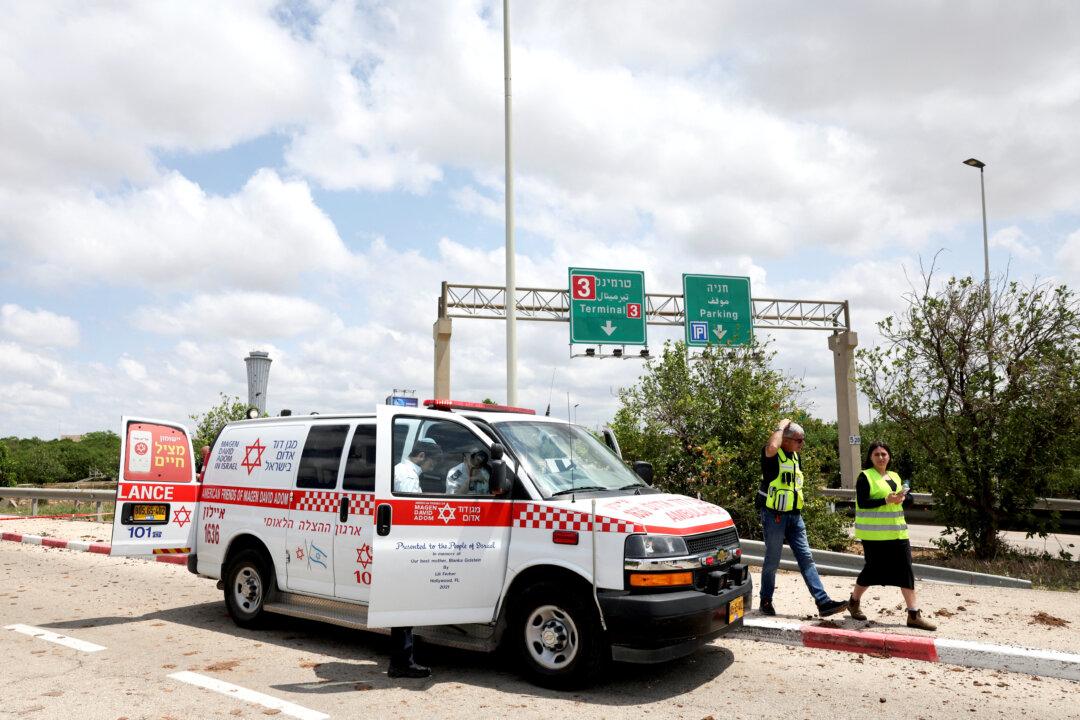The Houthi terrorist group on May 4 fired a missile toward Israel that landed near Ben Gurion Airport, the country’s main international airport, sending a plume of smoke into the air and causing panic in the terminal building.
The Houthis, who are aligned with Iran and based in Yemen, claimed responsibility for the strike. Recently, the group has ramped up missile attacks on Israel, citing solidarity with Palestinians in Gaza, which is controlled by the Iran-aligned Hamas terrorist group.





